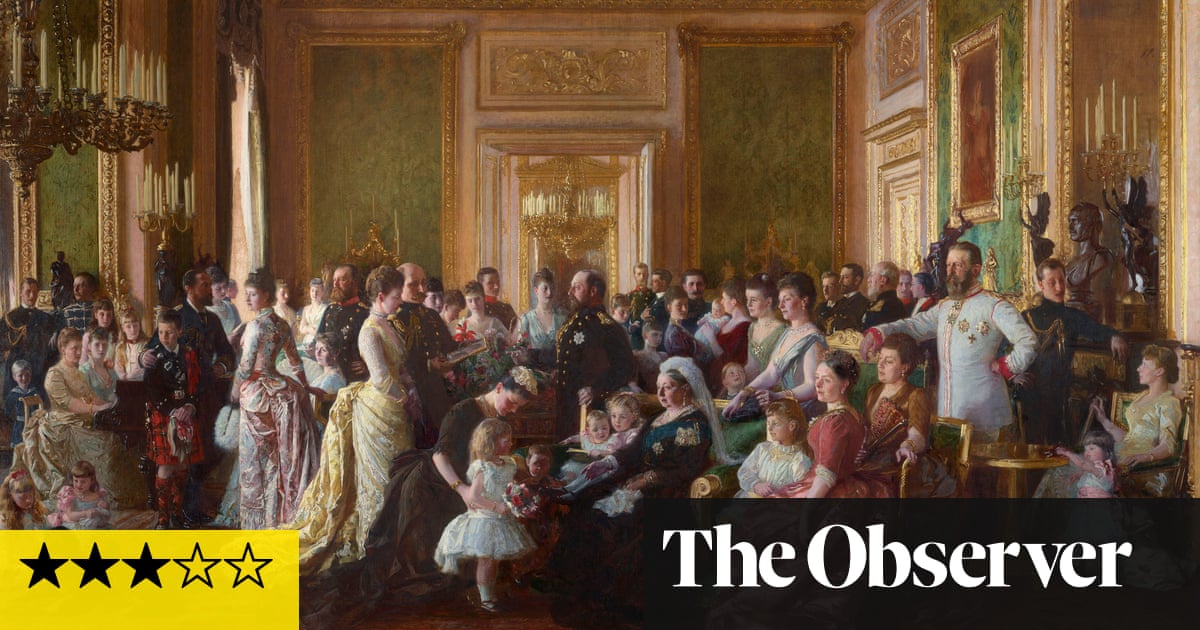Dungeness, on the Kent coast, has long championed pioneering architecture, welcoming the distinctive black and yellow home of the artist and film-maker Derek Jarman. But a proposal for a house clad in the rusty scrawls of the millionaire artist Mr Doodle has tested the open-mindedness of those who live there – and failed to win over the parish council.
Mr Doodle, whose real name is Sam Cox, lives in Doodle House, a six-bedroom home in Tenterden, elsewhere in Kent, that is covered inside and out in his trademark monochrome squiggles. The design was described by the Guardian at the time as “like stepping inside a migraine”.

The proposals for his holiday home in Dungeness are significantly more discreet.
The award-winning architect Guy Hollaway is behind the Log Cabin, a proposal to replace an existing “fairly unremarkable white boarded house” with a metal clad structure that restores two railway carriages inside it.
Hollaway said the distinctive seaside home had been designed to be respectful of the surrounding buildings and nature. Mr Doodle’s drawings will be laser cut in rusting metal that will be overlaid on the structure.
The parish council has been vocal in its criticism and some residents are also said to have dismissed the design as a “vanity project”.
Lydd town council said the metal facade would “not be in keeping with the historical value of Dungeness” and could “impact the environmental value of the area”, which is a designated site of special scientific interest.
The decision will ultimately fall to a panel that will meet on 7 January, and the district council has recommended it for approval.
The parish council expressed concern about the risk of wildlife getting stuck in the doodles and said an increase in visitors to view the house could have a negative impact on traffic.
Hollaway has 10 Royal Institute of British Architects awards for his work, including for Pobble House, a home in Dungeness which uses a similar metal mesh that has caused no problems with wildlife. He said: “If nature can get in, it can get out.”

Hollaway said the cabin would be used by Cox as a place to come with his family at weekends and for inspiration. “This is about Dungeness first. Sam wants to become part of the community. He doesn’t want to alienate himself from the community, and that means being respectful.
“He wouldn’t have bought into Dungeness if he didn’t understand Dungeness and he wouldn’t have commissioned me. He just would have taken the white boarded house that he’s got and just doodled it … This is not about that. This is about doing something really meaningful.”
Describing his inspiration for the design, Hollaway said: “The challenge is, how do you blend what is first and foremost, the character, the vernacular, and the essence of Dungeness, which has to come first, with the character of Mr Doodle? And that needs to be done in a really sensitive, subtle way.
“What we’ve done is to replicate the forms so that the building is on exactly the same footprint of the building that’s there already [and] we’ve replicated the forms that you would find on Dungeness … and then we take in the materiality from the place, which is rusting metal. And then we’ve just done a very subtle cutting of the metal with a doodle pattern, which will be very creative.”
The existing property is clad in white boards and covers two historic railway carriages that are part of the structure. The new plans would have the carriages removed and restored before being incorporated into the building.
Hollaway said the design was in keeping with a creative community. “Dungeness is a very unique place. It is quite bleak, and it’s attracted many creative people, because it feels very remote and it feels inspirational.”

.png) 3 months ago
31
3 months ago
31













































